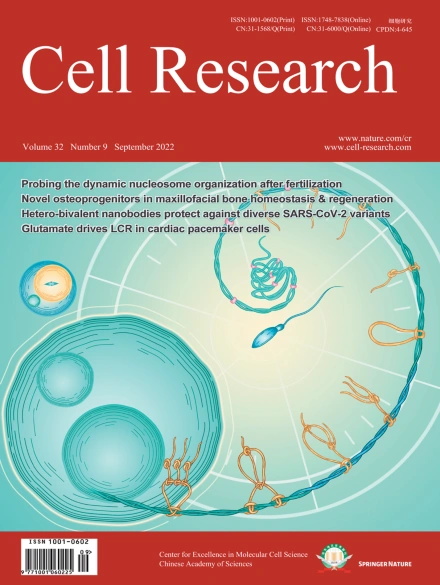
Advanced Search
Submit Manuscript
Advanced Search
Submit Manuscript
Volume 32, No 9, Sep 2022
ISSN: 1001-0602
EISSN: 1748-7838 2018
impact factor 17.848*
(Clarivate Analytics, 2019)
Volume 32 Issue 9, September 2022: 862-865
A broadly neutralizing antibody against SARS-CoV-2 Omicron variant infection exhibiting a novel trimer dimer conformation in spike protein binding
Yingdan Wang1,† , Wuqiang Zhan1,† , Jiangyan Liu1,2,† , Yanqun Wang3,† , Xiang Zhang1 , Meng Zhang1 , Lin Han1 , Yunping Ma1 , Lu Lu1 , Yumei Wen1 , Zhenguo Chen1 , Jincun Zhao3,4,* , Fan Wu2,* , Lei Sun1,* , Jinghe Huang1,*
1Key Laboratory of Medical Molecular Virology (MOE/NHC/CAMS) and Shanghai Institute of Infectious Disease and Biosecurity, Shanghai Fifth People’s Hospital, Shanghai Public Health Clinical Center, Institutes of Biomedical Sciences, School of Basic Medical Sciences, Fudan University, Shanghai, ChinaDear Editor,
The constant evolution of SARS-CoV-2 has resulted in the emergence of circulating variants during the COVID-19 pandemic. Recently, a newly emerged B.1.1.529 (Omicron) variant raised global concern. Compared with the original SARS-CoV-2 strain and other variants of concern (VOCs), the Omicron variant has more than 30 mutations on its spike (S) protein,1 of which 16 mutations are located in the receptor-binding domain (RBD). These mutations confer significant resistance to neutralizing antibodies elicited by COVID-19 convalescents2,3 or individuals who have received mRNA vaccines4,5 or inactivated vaccines.6 A recent study indicated that most SARS-CoV-2-specific monoclonal antibodies, including FDA-approved antibodies, have lost efficacy against the Omicron variant.7 The Omicron variant has become the dominant strain worldwide, making it urgent to update the vaccination strategy or develop new antibodies to catch up with the pandemic.
https://doi.org/10.1038/s41422-022-00684-0